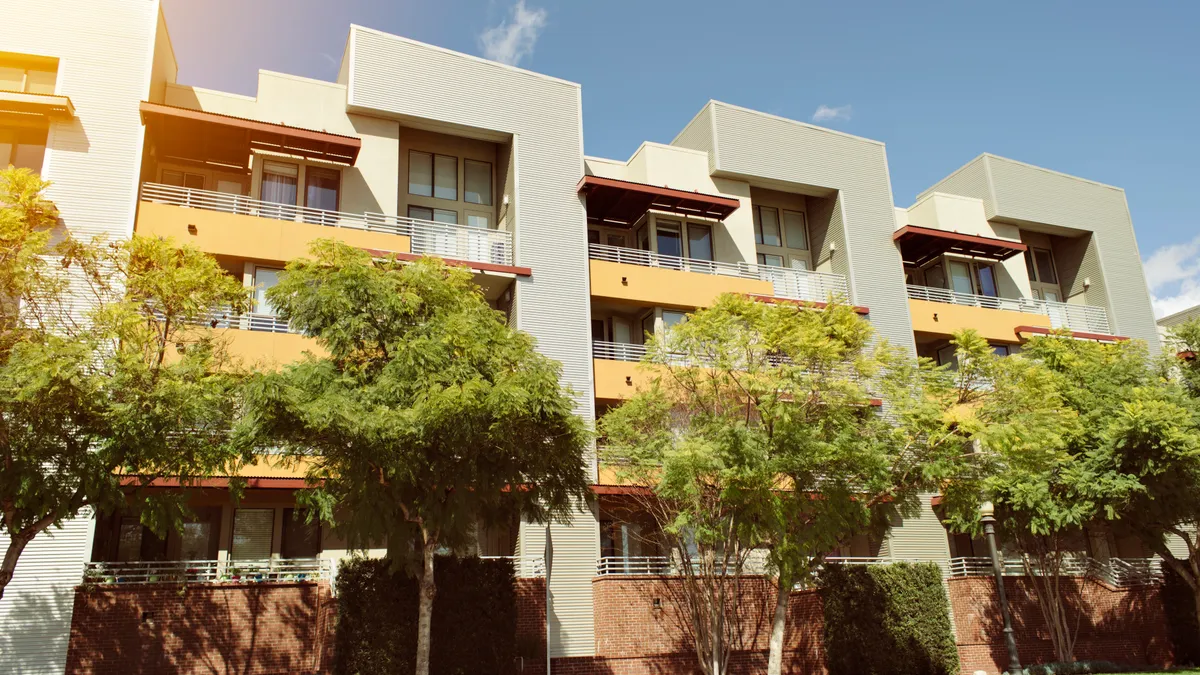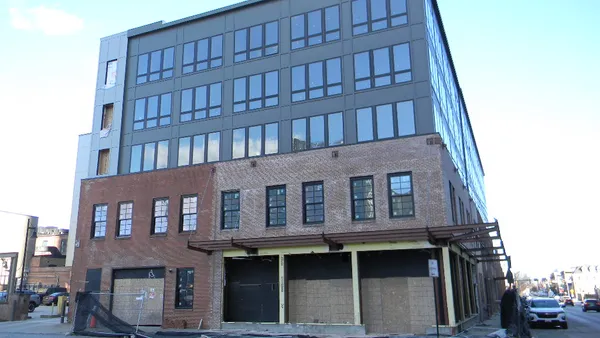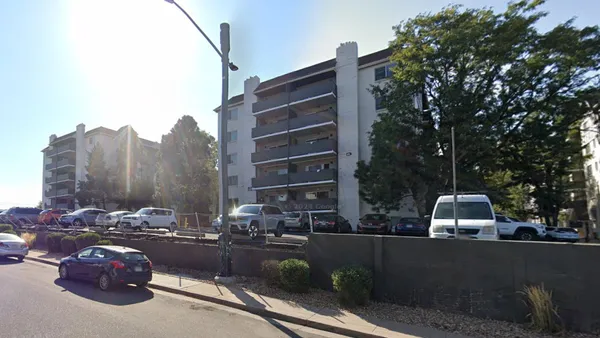Dive Brief:
- Florida State Sen. Alexis Calatayud, R, chair of the Senate Committee on Community Affairs, introduced a bill to the state Senate that aims to create more affordable housing and ban local governments from imposing rent controls, according to a press release last week.
- Senate Bill 102, dubbed the Live Local Act, would use tax incentives and, in FY2023, $100 million allocated from the state general revenue fund to encourage property developers to build and set aside more affordable housing units. It would also continue and increase funding for existing affordable housing programs, including the State Apartment Incentive Loan program and State Housing Initiatives Partnership.
- “This bill also provides new avenues for solutions in zoning, encouraging more mixed-use developments in latent commercial areas, and enhanced public access to information about expedited permitting and public property that may be suitable for workforce housing,” Florida Senate President Kathleen Passidomo, R, said in the press release.
Dive Insight:
Local and state governments nationwide are dealing with a housing shortage that has made renting or buying difficult for people with low or moderate incomes. Many have tried to increase the supply of market-rate and affordable housing units through zoning reform, streamlined approval processes, hotel or motel conversions, tax relief, additional funding, rent control or stabilization and other policies.
The bill’s rent control ban and lack of renter protections have drawn the ire of some affordable housing advocates, including Florida Rep. Anna Eskamani, D, who told WFTV last week that “it’s immediately taking away all the [local government] control and doesn’t provide any immediate relief and doesn’t do anything else for the need for renters and renters’ rights.” The provision escalates a fight that began last year, when voters approved, despite a temporary injunction, a November ballot measure that would impose rent controls in Orange County, Florida. Orange County’s commissioners voted 5-2 to appeal the court ruling last fall.
The Biden administration last week announced several federal actions aimed at protecting renters and making renting more affordable.
SB 102 would allow businesses to get up to $100 million in annual tax credits if they contribute directly to the SAIL program and create a sales tax refund for building materials. It would also permit local governments to create property tax credits for property owners that set aside affordable housing units for people with incomes 50% or less than the area median income — about $39,000 for a family of four.
New or recently renovated developments would be eligible for tax exemptions if they dedicate 70 or more units for people with low and moderate incomes. Property owners could receive a 100% tax exemption for units up to 80% of the area median income — less than $63,000 for a family of four. There would also be a 75% tax exemption for affordable housing units dedicated to people with 81% to 120% of the area median income, which is up to approximately $94,000 for a family of four.
SB 102 would result in $252 million in SHIP funding and $259 million in SAIL funding, with the latter including $150 million in new, recurring funds from documentary stamp tax revenue that currently goes to general revenue.
“The bill directs the additional funds, appropriated on top of traditional SAIL funding, to be used for innovative projects focused on mixed-use, urban infill, or developments near military installations in our state,” according to the press release.
It would also provide an additional $100 million in funds for the Hometown Heroes Program, which helps police officers, firefighters and other front-line community workers buy their first home through down payment and closing cost assistance.












